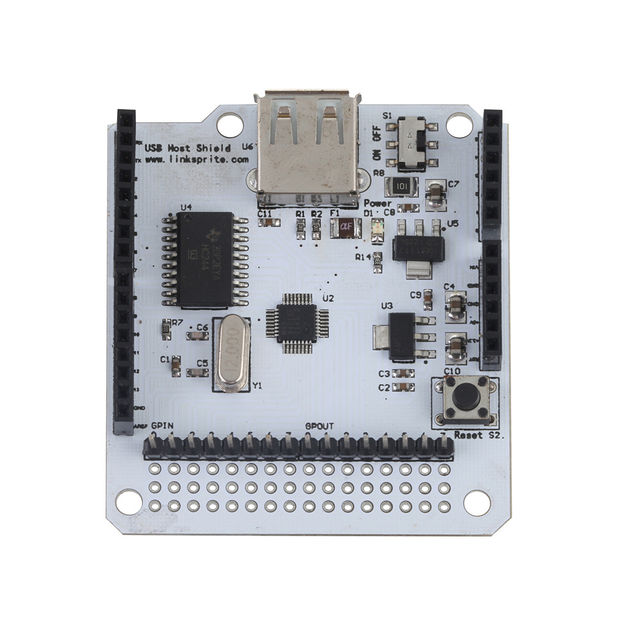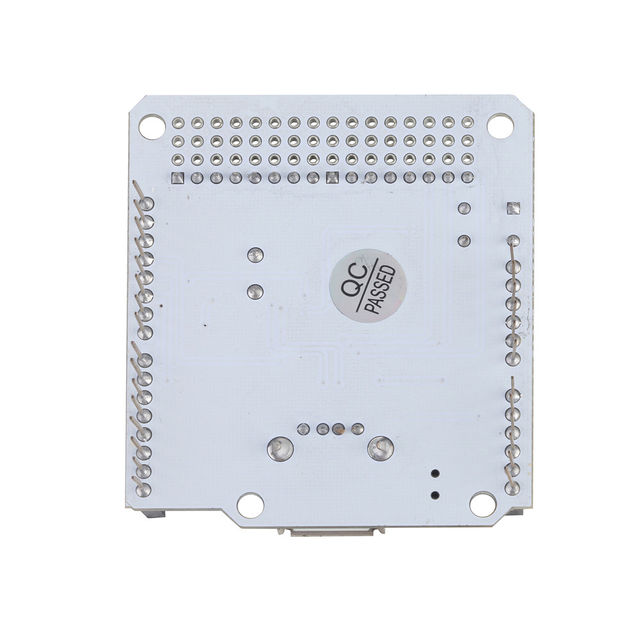Difference between revisions of "USB Host Shield for Arduino"
Qian.zhang (talk | contribs) (→Introduction) |
(→Introduction) |
||
| Line 10: | Line 10: | ||
[[File:N03DH WITHOUT PACKAGED BACK.jpg | 640px]] | [[File:N03DH WITHOUT PACKAGED BACK.jpg | 640px]] | ||
| − | |||
| − | |||
| − | |||
| − | |||
== Features == | == Features == | ||
Latest revision as of 03:18, 25 November 2016
Contents
Introduction
The USB Host Shield contains all of the digital logic and analog circuitry necessary to implement a full-speed USB peripheral/host controller with your Arduino. This means you could use your Arduino to interface with and control any USB slave device - thumbdrives, digital cameras, bluetooth dongles, and much more!
A four-wire serial interface is used to communicate with the host controller chip, so the shield connects the Arduino's hardware SPI pins (D10-13) to the MAX3421E. A USB type A female connector is wired up to the IC, and it also supplies 5V as any normal USB port would.
The Host Shield takes its power from the 'Vin' pin on your Arduino. Power from that pin is regulated to both 5V and 3.3V on the shield. All SPI signals are sent through a hex converter to step them down to 3.3V.
Features
Application Ideas
Cautions
The warnings and wrong operations possible cause dangerous.
Schematic
Specification
Pin definition and Rating
Mechanic Dimensions
Usage
Hardware Installation
Programming
FAQ
Support
Resources
- Project link
- Library files
- Building Google ADK hardware from standard components
- Android application samples
How to buy
Here to buy USB Host Shield for Arduino on store
See Also
Other related products and resources.
Licensing
This documentation is licensed under the Creative Commons Attribution-ShareAlike License 3.0 Source code and libraries are licensed under GPL/LGPL, see source code files for details.

